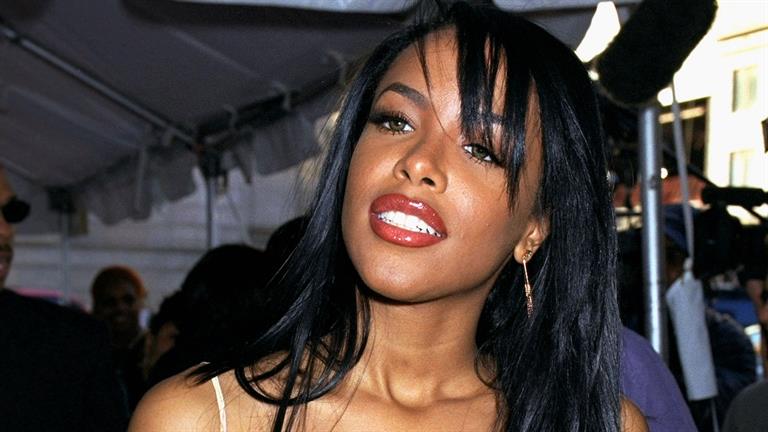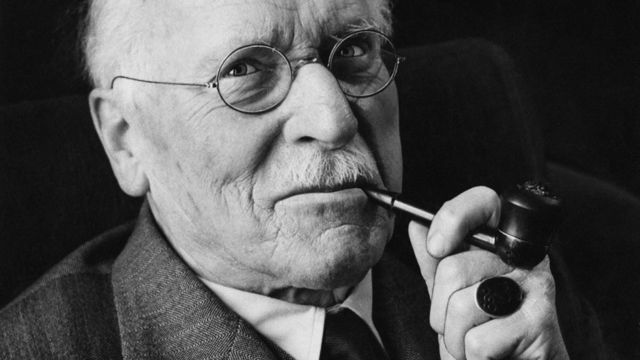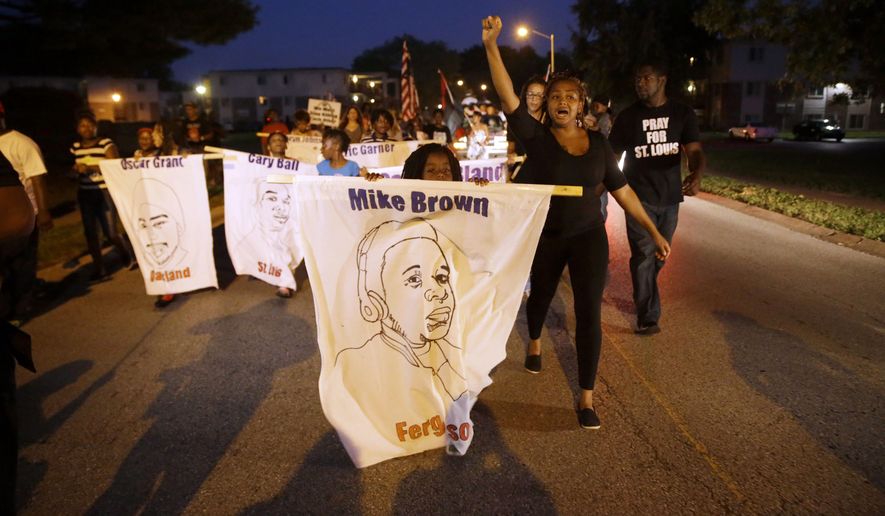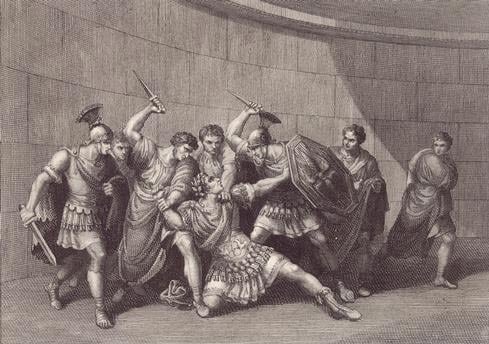The sewing machine, the song “Yesterday” by The Beatles, and Frankenstein’s monster all have one thing in common – they came to their creators in a dream, and now the world is a better and scarier place. But while dreams can be agents of creation, they can also be prophets of destruction, as the people on the list below might tell you (in a dream, of course). These people, though separated by hundreds and thousands of years of history, are all related because, in one way or another, they dreamed or envisioned their own deaths.
10. Charles Rasmussen
Charles is a good example of the scores of people who’ve had dreams and premonitions about their own deaths. Most of their accounts are too brief, too anecdotal, to spin into much of a story here, but it’s worth mentioning early on that there’s a giant bucketload of them out there. Charles is just one of many, but perhaps by way of mentioning him it’s possible to point your attention to other stories that might be of interest.
Mary Anne Sanders documents quite a few such stories in her book Nearing Death Awareness: A Guide to the Language, Visions, and Dreams of the Dying (2007). Chapter 4 is where we find the tale of Charles Rasmussen, a retired merchant captain fighting the good fight against cancer. One night, he had a dream that soothed his tired and frightened old soul:
“I am sailing again at night in uncharted waters, and the old sense of adventure comes back. I feel the tingle of excitement again, of pushing through the waves in the vast, dark, empty sea but knowing somehow I am right on course. And strangely enough, I’m not afraid to die anymore. In fact, I feel ready to go, more so every day.”
Those final thoughts are also cited by another good source, Dreaming Beyond Death (2005), by Dr. Kelly Bulkeley and Rev. Patricia Bulkley.
Dreams like the one Charles had often come to people in poor health. And it seems that the dreams in question are comforting and welcome to the dreamers, who are placed at ease by the thought that they’ll soon be peacefully relieved of their lot in life. It’s an interesting phenomenon, one that this author wouldn’t mind experiencing someday (later than sooner, hopefully).
Moving on to younger dreamers:
9. Aaliyah

Aaliyah’s death was a violent, untimely tragedy, but the dream she had about it was gentle in comparison. The accomplished singer and actress was only 22 when a Cessna smashed her onto a runway in the Bahamas. Not long before, Aaliyah had reported having a premonition of sorts in recurring dream form:
“It is dark in my favorite dream. Someone is following me. I don’t know why. I’m scared. Then suddenly I lift off. Far away. How do I feel? As if I am swimming in the air. Free. Nobody can reach me. Nobody can touch me. It’s a wonderful feeling.”

These words, first published by the German newspaper Die Zeit in August 2001, come from a July 2001 interview in Paris, just a month before Aaliyah lifted off from Earth forever. In the interview, Aaliyah goes on to discuss her success and her dreams of someday raising a family and traveling to Egypt. The Queen of the Damned star was a bit taken aback by her dream:
“Otherwise I am alarmed by this dream somehow. What does it mean? That I want to escape from the real life sometimes? But from what? From success or the pressure of show business? No. I enjoy every second of my fame. If I could rewind my life back to the start, I wouldn’t change a thing, honestly.”
If you’re interested, RareVinyl provided an English translation of the Die Zeit account that reads a fair amount easier than Google Translate’s version.
8. Carl Jung

The father of analytical psychology, Carl Jung, was an influential thought leader and prolific writer who made major contributions to psychiatry, psychology, spirituality, the unconscious, extraversion/introversion, dream analysis, and, holy cow, I haven’t done jack with my life. Jung was known to be a lucid dreamer who often had visions, many of which are recorded in his Red Book. For example, before the outbreak of World War I, Jung had a waking dream in which the whole of Europe was flooded, and then a vision of blood spanning the horizon in rivers. This guy could’ve started his own religion if he’d wanted to.
Nearing Death Awareness notes that Jung recorded one final dream that he perceived as a sign of his death. Newsweek mentions this as well in an article about pre-death dreams, “A Dream Before Dying”:
“The last dream that psychologist Carl Jung was able to communicate to his followers, a few days before his death, was of a great round stone engraved with the words, ‘And this shall be a sign unto you of Wholeness and Oneness.’ To Jung, it showed that his work in this life was complete.”
Unfortunately, not all death-dreamers have comforting dreams. For example:
7. Michael Brown

Unarmed and only 18, Michael Brown, a black man, was shot to death on August 9, 2014, by former Ferguson police officer and white man Darren Wilson.
Brown had been having bloody premonitions in his dreams. This information was reported by every news outlet in the country when Brown’s stepmother Calvina (“Cal”) Brown revealed it during Michael’s funeral ceremony at the Friendly Temple Missionary Baptist Church in St. Louis. Below is part of what she said:
“Mike told me, ‘I didn’t think you were going to make it.’ And I said, ‘Why?’ and he said, ‘Because I’ve been dreaming of death, seeing pictures of death, seeing pictures of bloody sheets hanging on clotheslines.’ That touched me. That’s what it was like when he was lying there on the street. He prophesied his own death and didn’t realize it.”
Cal Brown had been sick and hospitalized a few months previously, so the freshly minted high school graduate thought the dreams were about her. Clearly, they weren’t. Michael’s uncle, a St. Louis pastor named Charles Ewing, also spoke of how the boy had dreamed of a body lying on the ground, covered by a sheet.
Perhaps the dreams also foreshadowed the “Darren Wilson” pig that protestors roasted and ate outside the Ferguson police department on the anniversary of Michael Brown’s death?
6. The King’s Baker

In the Book of Genesis, chapter 40, we find the story of Pharaoh’s baker and cupbearer, who were in jail for angering their ruler.
Joseph, one of the main Hebrew protagonists at this point in the Bible, had been sold into slavery by his loving brothers. Admirably positive and faithful to God even in captivity, Joseph was entrusted with great responsibilities both in his Egyptian master’s household and later in prison, where he was confined on false charges related to his ridiculously rugged handsomeness and tireless moral character (see Genesis 39). The jail warden gave him second command. As a result, Joseph directly oversaw the baker and cupbearer.
These two royal servants had worrisome dreams on the same night. By this point, you’re probably not surprised to hear that Joseph could also interpret dreams. Of course he could do that. What’s next, Joseph in charge of the entire country, answering only to Pharaoh himself? Anyway, Joseph volunteered to offer dream interpretations to both men. Here’s the cupbearer’s dream:
“In my dream I saw a vine in front of me, and on the vine were three branches. As soon as it budded, it blossomed, and its clusters ripened into grapes. Pharaoh’s cup was in my hand, and I took the grapes, squeezed them into Pharaoh’s cup and put the cup in his hand.”
Joseph’s interpretation: In three days, you will be freed from prison and restored to your previous position as Pharaoh’s cupbearer. Yay!
Now, here’s the baker’s dream:
“I too had a dream: On my head were three baskets of bread. In the top basket were all kinds of baked goods for Pharaoh, but the birds were eating them out of the basket on my head.”
Joseph’s interpretation: In three days, you will be beheaded and savagely impaled on a stake, Old Testament style. Yay!
5. Enkidu

The ancient Epic of Gilgamesh stars a character named Enkidu, who, in one common evolution of the complicated and much-adapted story, was created by the gods to rein in the oppressive rule of Gilgamesh, king of Uruk. Enkidu was intended to be a rival for the mighty Gilgamesh, whose arrogance was a heavy burden upon the people of Uruk. However, after being raised by animals, like many other feral children of mythology and literature, Enkidu left the wild, learned the ways of society, and ended up becoming best buds with the king. In the epic, he accompanies Gilgamesh on various adventures and slays various monsters, including Humbaba, the giant beastly Cedar Forest guard whose tail and dick were both decked out with snake heads.
Enter Ishtar, goddess of fertility, love, war, and sex. Ishtar was after Gilgamesh in a non-war kind of way, if you get my drift. But, knowing her reputation for being cruel and unusual to basically all of her past lovers, Gilgamesh turned her down. Pissed, Ishtar ran off whining to her father Anu, the most powerful god, and demanded access to Gugalanna, the fearsome Bull of Heaven – which she then sicced on Gilgamesh and Enkidu. Normally, getting attacked by Gugalanna would end with you being 100% mauled to death, but, what with Gilgamesh and Enkidu being heroes and all, they managed to slit the thing’s throat without much trouble. When Ishtar screamed at them for their selfish act of not dying, Enkidu simply ripped out the dead bull’s guts and threw them in her face.
That night, Enkidu had a dream:
“Enkidu spoke to Gilgamesh, saying: ‘What a dream I dreamed last night, my friend and brother! The great gods Anu, Enlil, Ea, and Shamash held an assembly, and Anu spoke unto Ea thus: Because these two slew the Heaven-Bull, and slew Humbaba, the guardian of the mountains and the Forest of Cedar, one of the two must die. Enlil said unto Anu, Let Enkidu die, for Gilgamesh must die not! Shamash, however, spoke unto Enlil thus: Was it not by thy order that these men slew the Heaven-Bull and the guardian Humbaba? Why should the innocent Enkidu die for this? But Enlil, burning with anger at Shamash, said unto him: Each day thou traveled with them like unto a companion.'”
The gods were angry because, well, that’s what gods do. Enkidu was screwed, essentially. After the dream, he fell sick for 12 days, and then he died.
4. Abraham Lincoln

According to his friend, law partner, and bodyguard Ward Hill Lamon, Abraham Lincoln told family members and friends about a dream he had just a few days before his assassination in April 1865. In the dream, he entered the East Room of the White House, where he saw a corpse guarded by soldiers, and a crowd in attendance mourning the deceased. Lincoln asked who it was, and they told him: “The president.” Lamon’s Recollections of Abraham Lincoln wasn’t published until long afterward, so some experts have questioned the validity of the account.
However, there are other stories of Lincoln recounting dreams to his family. And certain cabinet members said that Lincoln, on the morning of his assassination, had told them about a dream of “sailing across an unknown body of water at great speed” – a dream he’d had many times, especially before important events of war.
Lincoln also told a different bodyguard, William H. Crook, about his East Room dream. Crook recommended against attending the theater, but Lincoln decided to go, and as he was leaving he said “Goodbye, Crook” – instead of his usual “Goodnight, Crook.” Unfortunately, as we all know, there was another kind of crook waiting for Lincoln that night, and the rest is history.
3. Caligula

Caligula, the third Roman emperor, ruled from 37 to 41 and had a reputation for being cruel, perverted, and wasteful, traits that led indirectly to his assassination in January 41. This guy had all kinds of innocent people executed and is rumored to have carried on incestuous relationships with his sisters. If you have a list of movies to not watch before you die, Caligula (1979) should probably be on it.
Caligula was bad karma incarnate, and he kind of had the whole assassination thing coming. The neat thing, if you can call assassinations neat, is that Caligula had a symbolic dream the night before he was murdered to death.
As Suetonius recounts, Caligula saw himself in the presence of Jupiter. The Roman god of gods promptly booted him back to Earth – a seriously bad omen back then, interpreted as a death notice. Suetonius includes several other omens, including a warning from the oracle at Antium to “beware of Cassius” – referring to Cassius Chaerea, the centurion Caligula had insulted and the assassin who drew first blood. Suetonius also notes that Caligula suffered from mental instability, insomnia, and regular terrifying visions, so it’s not all that surprising that he had a prophetic dream of sorts.
2. Joan of Arc

France’s patron saint of having visions and kicking Anglo-Burgundian ass lived a short but action-packed life in the middle of all the Hundred Years’ War ruckus. Born in 1412 in small-town northeastern France, Joan of Arc began having visions in 1425 – visions that gave her a mission to rid France of its English enemies and restore the crown prince Charles to power. Joan left home to inspire the French forces in retaking Orléans and Reims, and saw Charles crowned King of France in 1429. The unlikely hero helped the impossible happen thanks to strategic appearances from (and/or hallucinations of) Saints Catherine, Margaret, and Michael.
It’s hard to tell when exactly Joan’s “I’m gonna die” moment arrived, but it was sometime before her campaigns began. While still convening with Charles regarding the siege of Orléans, she had the following to say to the Duke of Alencon, Charles’ cousin:
“I shall last a year, and but little longer: we must think to do good work in that year.”
Joan’s father had a dream, too, before all of this drama went down. Jacques d’Arc dreamed of his daughter in the company of soldiers, following an army as an honorable maiden should not. Here are the words he spoke to his sons in reaction:
“In truth, if I thought this thing would happen which I have dreamed about my daughter, I should want you to drown her; and if you would not, I would drown her myself.”
Perhaps this is part of why the Maid of Orléans lied about her reasons for leaving home and never saw her parents again?
1. Sharon Tate

In a May 1970 issue of Fate magazine, Dick Kleiner published an article describing how Manson Family victim Sharon Tate had a disturbing vision/waking dream a couple years before the gruesome events of August 9, 1969. The article, “Sharon Tate’s Preview of Murder,” goes into great detail about the vision, which can more accurately be described as two visions in one.
In the summer of 1967, while romantically involved with another eventual victim, Jay Sebring, Tate told of spending a night alone in Sebring’s home, which was previously owned by a man who died in it – Hollywood agent Paul Bern. That night, Tate had a “funny feeling” and saw a “small man” bumbling around the bedroom – a man who looked exactly like Paul Bern. Terrified, she fled the room and headed downstairs, only to behold another horror:
“I saw something or someone tied to the staircase. Whoever it was – and I couldn’t tell if it was a man or a woman, but knew somehow that it was either Jay Sebring or me – he or she was cut open at the throat.”
Double terrified, Tate proceeded directly to the liquor cabinet, like any normal human, and had a drink to calm herself down. She nervously ripped some wallpaper off the bottom of the liquor cabinet. Then she returned back upstairs, walked past the mortally wounded figure and the strange little man, flopped into bed, and somehow fell asleep for real. The next morning, when Sebring returned and Tate told him of her dream, the two dismissed it all with a chuckle. Then they went into the room with the liquor cabinet. The cabinet was open, and there were scraps of wallpaper scattered about the floor.
Two years later, they were both dead.
1 Comment
Sure would have liked to see that post, yet 30 seconds of loading all your dumbass ads that I wasn’t going to click anyway prevented that